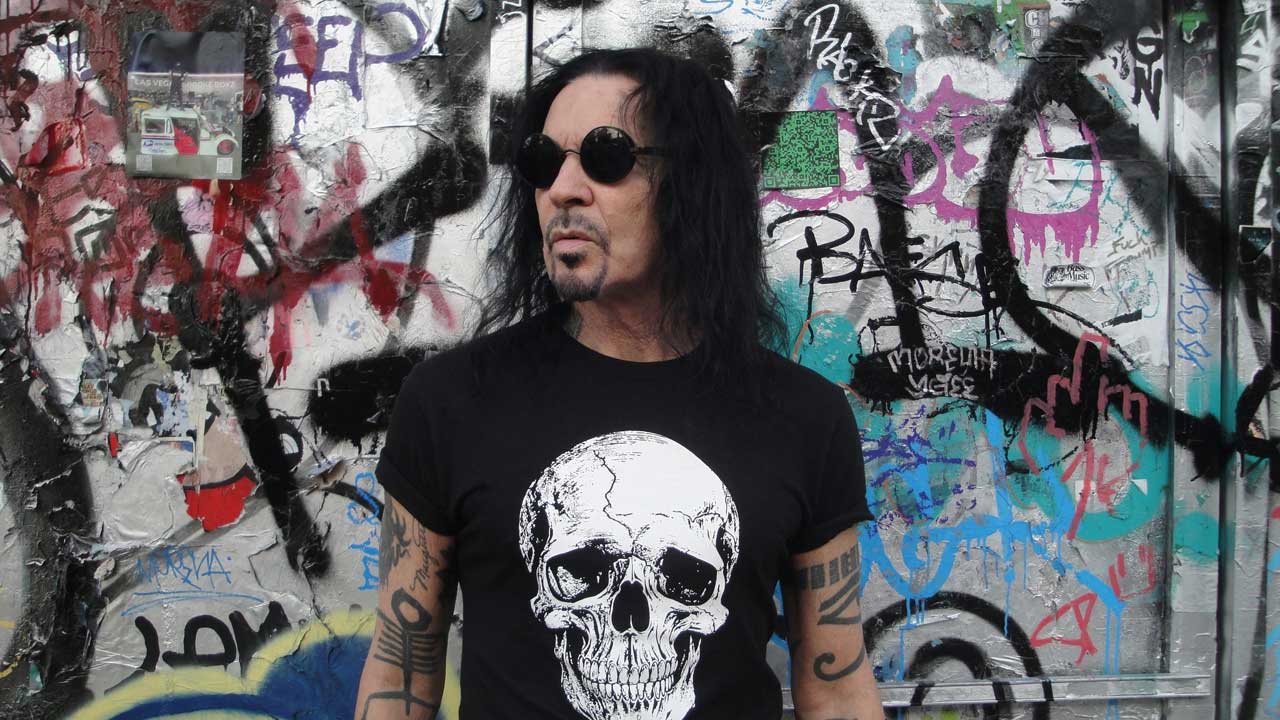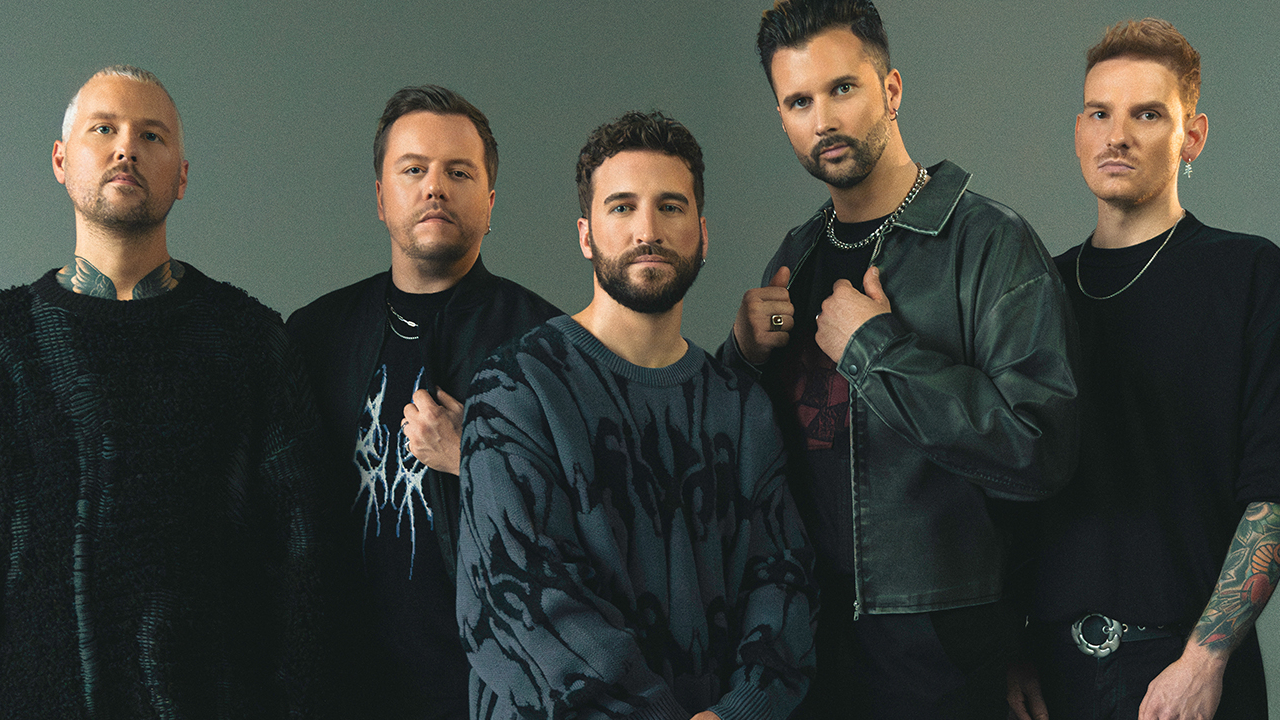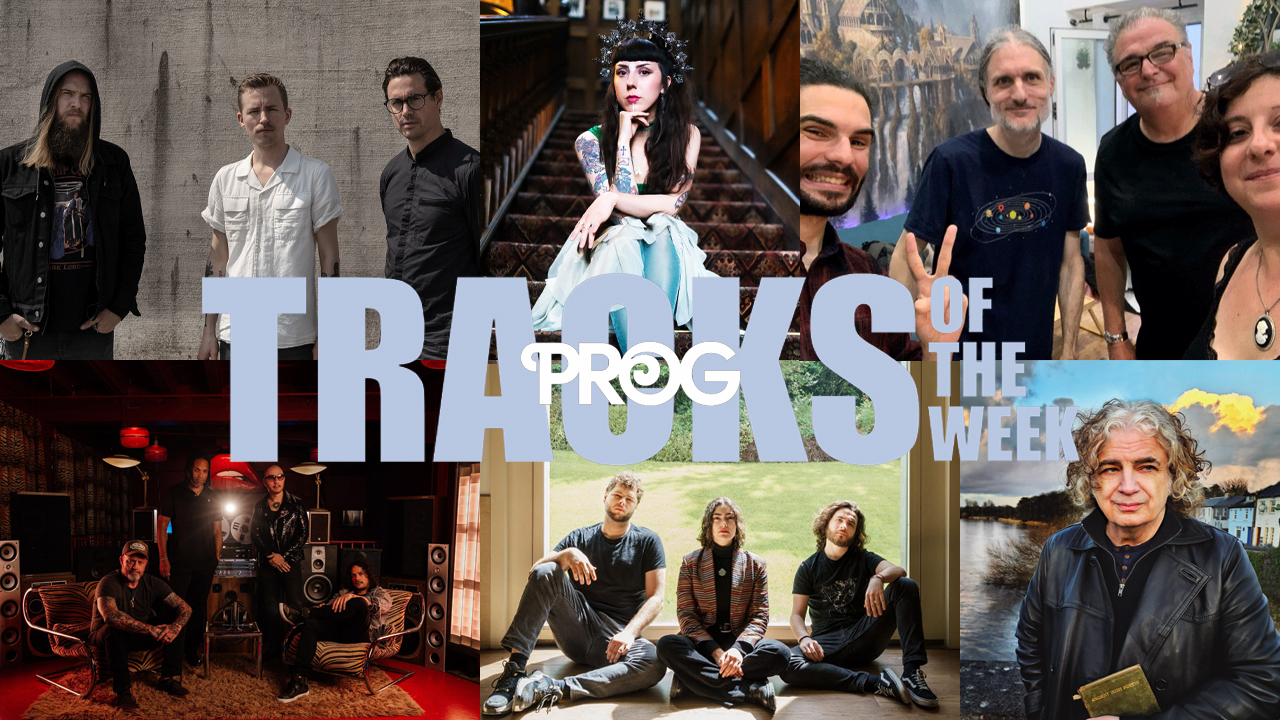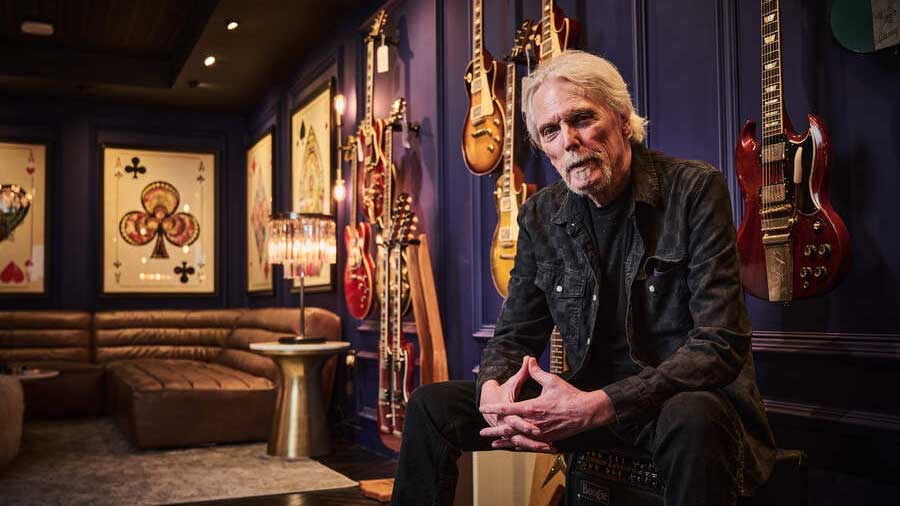
Feature Photo: Northfoto / Shutterstock.com
Throughout his legendary four-decade career, Prince assembled and dissolved numerous musical configurations that became the sonic backbone of his ever-evolving artistry. From his earliest Minneapolis days forming Grand Central in high school to his final performances with 3rdeyegirl, Prince’s musical journey encompassed multiple distinct eras, each characterized by different band lineups that reflected his artistic growth and changing musical vision. His career spanned from 1978 to 2016, during which he released 39 studio albums and worked with dozens of musicians across various band configurations. The most notable lineups included his early touring bands, The Revolution during his commercial peak, The New Power Generation throughout the 1990s and 2000s, and 3rdeyegirl in his final years.
Prince’s band history can be divided into several major periods: his early unnamed touring bands (1979-1986), The Revolution (officially from 1984-1986), various transitional lineups (1987-1990), The New Power Generation (1990-2013), and 3rdeyegirl (2013-2016). Each configuration brought unique musical elements to Prince’s sound, from The Revolution’s new wave-influenced pop-rock stylings that dominated the Purple Rain era to The New Power Generation’s funk-heavy approach that defined his 1990s output. The Revolution is famous for its “Purple Rain”-era all-stars: Wendy & Lisa, Dr. Fink, Brown Mark, and Bobby Z, while NPG fans point to the lineup featuring Rosie Gaines, Tommy Barbarella, Sonny T, and Michael Bland as Prince’s tightest, funkiest outfit.
Prince’s approach to band leadership was notoriously demanding yet rewarding, with many former members describing the experience as both challenging and career-defining. Prince gave a lot of spotlight to his bandmates, launching careers such as Sheila E, The Time, New Power Generation, Vanity, Carmen Electra, and Apollonia. His bands served not only as backing musicians but as creative collaborators who contributed significantly to his artistic output. The musicians who worked with Prince often went on to have successful solo careers, with many continuing to perform his music in tribute bands and reunion tours following his death in 2016.
André Cymone
André Cymone, born Andre Simon Anderson on June 27, 1958, was a bass guitarist for Prince’s touring band before The Revolution period. Cymone’s relationship with Prince stretched back to childhood, as they lived together during Prince’s troubled teenage years. The Anderson home had an additional member – a young Prince who left his own home due to conflicts with his father. Their musical partnership began in earnest when in 1979, Prince created a band with André Cymone on bass, Dez Dickerson on guitar, Gayle Chapman and Doctor Fink on keyboards, and Bobby Z. on drums.
Cymone performed with Prince from 1979 to 1981, appearing on the albums Prince (1979), Dirty Mind (1980), and Controversy (1981). Cymone left over a number of grievances with Prince—little input in the studio, he was not getting credit for his contributions to Prince’s music, and in general his desire to start his own career—and would have bitter feelings toward Prince as he later claimed that Prince stole many of his ideas that were used for the Time and that he created the bassline for Controversy’s “Do Me, Baby”. His departure led to him being replaced by Mark Brown, who was renamed “Brownmark” by Prince.
After leaving Prince’s band, Cymone embarked on a successful solo career, signing with Columbia Records. He released three solo albums – Livin’ In The New Wave (1982), Survivin’ in the 80s (1983), and AC (1985). His only successful single – a song written by Prince – was “The Dance Electric” from AC, which reached #10 on the R&B charts in 1985. Cymone transitioned into production work and became better known for producing his then-wife Jody Watley, co-writing and producing her hits “Looking for a New Love” and “Real Love.” He has also produced tracks for Evelyn “Champagne” King, Pebbles, Jermaine Stewart, and Adam Ant. In 2014, Cymone released his fourth studio album The Stone, ending a 27-year singing hiatus, followed by his sixth album 1969 in 2017.
Dez Dickerson
Desmond D’andrea Dickerson, born August 7, 1955, was a guitarist who joined Prince’s band after answering an advertisement in the Twin Cities Reader in 1979. After a 15-minute audition in the back of Del’s Tire Mart, Dickerson was picked as guitarist, joining what would eventually become The Revolution. His tenure with Prince lasted from 1979 to 1983, during which he contributed to several key albums and helped establish the band’s early sound.
Dickerson’s most notable studio contributions include co-lead vocals on the 1999 album and backing vocals plus a memorable guitar solo on “Little Red Corvette.” His guitar solo on “Little Red Corvette” was ranked number 64 in Guitar World’s 100 Greatest Solos of All Time. However, his relationship with Prince became complicated when in 1980, during a Christmas break, Dickerson had a profound conversion experience and became a born-again Christian. Afterwards, performing songs with sexual themes began to trouble his conscience.
Dickerson left the band for religious reasons, with Prince telling him that he needed three years from him, and Dickerson was not willing to commit. Prince honored his contract and kept him on payroll. After leaving Prince, Dickerson contributed songs for Prince’s side projects, writing “He’s So Dull” for Vanity 6 and co-writing several tracks for The Time. He moved into the Christian music industry, eventually becoming vice president of A&R with CCM label Starsong Communications in 1990. In 1994, he founded his own label, Absolute Records, a Christian rock record company, and later managed record label and branding companies Pavilion Entertainment and Pavilion Synergies in Nashville.
Bobby Z
Bobby Z. (Robert Rivkin) served as drummer and percussionist from 1979–1986, and later reunited with The Revolution for concerts in 2012 and from 2016–present. As one of the longest-serving early members, Bobby Z was instrumental in establishing the rhythmic foundation of Prince’s sound during his commercial breakthrough period. His drumming can be heard on crucial albums including Prince (1979), Dirty Mind (1980), Controversy (1981), 1999 (1982), Purple Rain (1984), Around the World in a Day (1985), and Parade (1986).
Bobby Z’s drumming style perfectly complemented Prince’s vision, providing the steady backbeat that anchored hits like “1999,” “Little Red Corvette,” “Purple Rain,” and “When Doves Cry.” He was credited as a “heaven-sent helper” alongside André Cymone on the Prince album, reflecting his early importance to Prince’s recording process. His work during The Revolution era helped define the sound that would make Prince a global superstar.
After The Revolution disbanded in 1986, Prince called Bobby Z. to tell him that he was being replaced by Sheila E, although he was kept on payroll for quite a few years after the fact, honoring Z’s contract. Following his departure from Prince’s touring band, Bobby Z released a solo album in 1989. He later became involved in Revolution reunion activities, organizing benefit concerts and continuing to perform Prince’s music. In 2012, Bobby Z organized a full-scale Revolution reunion which was set up to raise money and awareness for heart disease; Prince attended the performances but did not participate.
Matt “Dr.” Fink
Matt Fink served as keyboardist, synthesizer player, and vocalist from 1979–1986, and continued to work with Prince until the Nude Tour. He later reunited with The Revolution in 2012 and from 2016–present. Known for his distinctive stage persona, Fink originally wore a black- and white-striped prison jumpsuit. However, a member of Rick James’ band was doing the same thing and not wanting to copy that, Prince asked Fink, “Do you have any other ideas?” Fink said, “What about a doctor’s outfit?” Prince loved the idea, and thus was born Doctor Fink.
Dr. Fink was one of Prince’s most consistent early collaborators, contributing keyboards and synthesizers to all the major albums during Prince’s rise to stardom. Fink went the furthest back, having co-written the title track from 1980’s Dirty Mind. His synthesizer work was crucial in creating the electronic textures that characterized Prince’s sound during the 1980s, particularly on albums like 1999 and Purple Rain. His distinctive keyboard sounds helped bridge Prince’s funk roots with the new wave and synth-pop influences that made his music so commercially appealing.
After The Revolution disbanded, Dr. Fink continued working with Prince for several more years, demonstrating the respect Prince had for his musical contributions. When the Revolution ended, some of the musicians remained, including Leeds, Bliss, Fink and Weaver. These men would stay with Prince through the ensuing years, eventually departing prior to the creation of the New Power Generation. Following his time with Prince, Dr. Fink has remained active in the music industry and participates in Revolution reunion performances, keeping the legacy of Prince’s most famous band alive.
Gayle Chapman
Gayle Chapman was one of Prince’s earliest keyboard players, joining the initial touring band formation in 1979. She was part of the original band that included André Cymone on bass, Dez Dickerson on guitar, Matt “Dr.” Fink on keyboards, and Bobby Z. on drums, making their debut at the Capri Theater in Minneapolis on January 5 and 6, 1979. Chapman contributed to the early development of Prince’s live sound during his transition from solo recording artist to bandleader.
Keyboard player Gayle Chapman left the band before the Dirty Mind Tour in late 1980, making her tenure relatively brief but significant as she was part of the foundational lineup that helped establish Prince’s touring presence. Her departure occurred during a period when Prince was rapidly evolving his sound and image, particularly with the more sexually explicit material on the Dirty Mind album. Chapman was subsequently replaced by Lisa Coleman, who would become a much more prominent figure in Prince’s musical development.
After leaving Prince’s band, Chapman maintained a lower profile in the music industry compared to many of her former bandmates. Her contributions to Prince’s early development as a live performer, however, were crucial during a formative period when he was learning to balance his role as both a solo artist and a bandleader. The experience she gained with Prince’s early band helped establish many of the performance dynamics that would later be refined during The Revolution era.
Lisa Coleman
Lisa Coleman served as keyboardist, synthesizer player, and vocalist from 1980–1986, and later reunited with The Revolution in 2012 and from 2016–present. Coleman replaced Gayle Chapman, joining when she was just 19 years old. Her addition to the band marked a significant evolution in Prince’s musical development, as she brought both technical skills and creative input that would influence his songwriting during some of his most successful years.
Coleman’s keyboard work can be heard on 1999 (1982), Purple Rain (1984), Around the World in a Day (1985), and Parade (1986). Coleman was usually only identified by her first name during her time with Prince. She formed a particularly important creative partnership with Wendy Melvoin, and together they provided significant musical input during The Revolution era. Wendy and Lisa shortly thereafter formed a special bond with Prince and greatly influenced his output during the rest of their tenure in the band.
Shortly after the Parade Tour in October 1986, after all the tension between Prince, Wendy Melvoin, and Coleman due to his relationship with Susannah Melvoin, Prince invited Wendy Melvoin and Coleman to dinner at his rented Beverly Hills home and fired them both. Following their departure, Coleman and Wendy Melvoin formed the successful duo Wendy & Lisa, releasing several critically acclaimed albums and eventually moving into television scoring. Their work has included composing music for series like “Heroes,” “Crossing Jordan,” and “Nurse Jackie.” The duo has maintained a successful partnership for over three decades, demonstrating the creative chemistry that originally caught Prince’s attention.
Brownmark (Mark Brown)
Mark Brown, renamed Brownmark by Prince, replaced André Cymone as bassist in September 1981 and served until 1986. His tenure with Prince covered some of the most commercially successful years of Prince’s career, including the albums that would establish him as a global superstar. Brownmark’s bass playing provided the rhythmic foundation for hits during the 1999, Purple Rain, Around the World in a Day, and Parade eras.
Brownmark’s bass work was crucial during the period when Prince was perfecting his blend of funk, rock, and pop that would define his commercial peak. His playing style complemented Bobby Z’s drumming and the keyboard work of Dr. Fink and Lisa Coleman, creating the tight rhythm section that made The Revolution such an effective unit. The Revolution knew they had a problem when Prince began making changes to his stage setup, specifically putting the dancers in front of his band, and tensions grew over financial and creative issues.
Brownmark was asked to stay but quit after The Revolution disbanded, partly out of loyalty to the others and also because he was unhappy with the direction of Prince’s music at the time. During the later tour periods, Prince promised Brownmark a lot of money, but Brownmark settled for $3000 a week, a paltry sum based on other touring bands. He turned down a much more lucrative gig as bassist for Stevie Nicks, who was going on tour at that time. Brown has said that Prince never followed through on “all that money”. After leaving Prince, Brownmark pursued other musical projects and remained connected to the Minneapolis music scene that had nurtured his early career.
Wendy Melvoin
Wendy Melvoin replaced Dez Dickerson as guitarist following the 1999 Tour and served from 1983-1986. Her arrival – like Coleman, Melvoin joined when she was just 19 – completed Prince’s vision of a multi-gender Fleetwood Mac-style band. Wendy was Lisa Coleman’s childhood friend, and their musical partnership would become one of the most important creative relationships in Prince’s career during the mid-1980s.
Melvoin’s guitar work appears on Purple Rain (1984), Around the World in a Day (1985), and Parade (1986). Wendy and Lisa formed a special bond with Prince and greatly influenced his output during the rest of their tenure in the band. Her guitar style brought a different texture to Prince’s music compared to Dez Dickerson’s approach, contributing to the more polished and mainstream sound that characterized Prince’s commercial peak. The creative input from both Wendy and Lisa helped push Prince’s music in new directions during this period.
The musicians got a sense that Prince was yearning for change, and his relationship with the Revolution over the next few months would only exacerbate the matter. The raise request added tension between Prince and his group. Prince invited Wendy Melvoin and Coleman to dinner at his rented Beverly Hills home and fired them both in October 1986. After leaving Prince, Wendy & Lisa became a successful recording duo, releasing multiple albums and eventually transitioning into television and film scoring. Their work has included Emmy-winning compositions for television series, establishing them as respected composers in their own right.
Sheila E
Sheila Cecilia Escovedo, known as Sheila E., is a singer, songwriter, and multi-instrumentalist born December 12, 1957, who worked extensively with Prince from 1984 onwards. While primarily a solo artist, Sheila E. served multiple roles with Prince’s various bands and projects. She began recording her first solo album with Prince, whom she met at a concert when she was performing with her father in 1977. Her relationship with Prince encompassed both professional collaboration and personal involvement.
In June 1987, Sheila served as the musical director for Prince’s Sign o’ the Times Tour. She also served as musical director during his Lovesexy Tour in 1988 and 1989. Her percussion and drumming skills made her an invaluable addition to Prince’s musical arsenal. Prince called Bobby Z. to tell him that he was being replaced by Sheila E during the transition period after The Revolution disbanded. Her dynamic stage presence and musical versatility made her a perfect fit for Prince’s evolving artistic vision.
Sheila E.’s solo career flourished alongside her work with Prince. She released The Glamorous Life (1984), which peaked at number 28 on the U.S. Billboard 200 and sold over 500,000 copies, becoming certified gold. The album’s lead single “The Glamorous Life” peaked in the top-ten on the US Hot 100. She continued collaborating with Prince throughout the decades, appearing at various reunion performances and special events. In 2001, she began as a member of Ringo Starr & His All-Starr Band and toured with the band in 2001, 2003, and 2006, establishing herself as one of the most respected percussionists in popular music.
Eric Leeds
Eric Leeds was a saxophonist who joined Prince’s band during the expanded Revolution period in 1986. In early 1986, the lineup was augmented with the additions of guitarist Miko Weaver, and the horn section of Eric Leeds and Matt “Atlanta Bliss” Blistan. Leeds brought a jazz sensibility to Prince’s music that would influence his sound throughout the late 1980s and beyond. His saxophone work added sophisticated harmonic textures that complemented Prince’s expanding musical palette.
Leeds’ contributions can be heard on the Parade album and subsequent tours. Eric Leeds is a former member of The Family; brother Alan served as Prince’s then-tour manager, which demonstrates the interconnected nature of Prince’s musical family. The addition of a horn section marked a significant evolution in Prince’s live sound, moving beyond the basic rock band format toward a more complex musical arrangement that could accommodate his increasing interest in jazz and R&B.
When the Revolution ended, some of the musicians remained, including Leeds, Bliss, Fink and Weaver. These men would stay with Prince through the ensuing years, eventually departing prior to the creation of the New Power Generation. Leeds’ continued presence in Prince’s band during the transitional period between The Revolution and the NPG demonstrates the value Prince placed on his musical contributions. His saxophone work during this period helped bridge the gap between Prince’s rock-oriented Revolution era and the more funk-focused New Power Generation period.
Matt “Atlanta Bliss” Blistan
Matt Blistan, known as “Atlanta Bliss,” was a trumpet player who joined Prince’s expanded Revolution lineup in 1986. In early 1986, the lineup was augmented with the additions of guitarist Miko Weaver, and the horn section of Eric Leeds and Matt “Atlanta Bliss” Blistan. His trumpet work, combined with Eric Leeds’ saxophone, created the horn section that gave Prince’s mid-1980s music a more sophisticated jazz-funk sound.
Bliss contributed to the Parade album and the subsequent Hit n Run – Parade Tour. For their part, the newcomers understood their place. “When Eric and I joined, we called ourselves the Counter Revolution,” Bliss revealed. “We couldn’t say we were the Revolution because the Revolution is that quintessential band”. This statement reflects the respect that later additions had for the core Revolution members while acknowledging their own important contributions to Prince’s expanding sound.
These men would stay with Prince through the ensuing years, eventually departing prior to the creation of the New Power Generation. Bliss’s trumpet work during this transitional period helped establish the horn arrangements that would become a recurring element in Prince’s later music. His contributions during the late Revolution era and the subsequent unnamed band period helped bridge Prince’s evolution from rock-oriented music toward the more R&B and funk-focused approach he would take with the New Power Generation.
Miko Weaver
Miko Weaver was a guitarist who joined Prince’s band during the expanded Revolution period in 1986. In early 1986, the lineup was augmented with the additions of guitarist Miko Weaver, and the horn section of Eric Leeds and Matt “Atlanta Bliss” Blistan. Weaver’s addition provided Prince with additional guitar textures and allowed for more complex musical arrangements during live performances.
Miko Weaver joined via association with Sheila E. and as session guitarist for The Family, demonstrating the interconnected nature of Prince’s musical associates. His guitar work complemented Wendy Melvoin’s playing and added depth to the band’s sound during the Parade era. Weaver’s style brought different influences that helped expand the sonic palette available to Prince during this creative period.
When the Revolution ended, some of the musicians remained, including Leeds, Bliss, Fink and Weaver. These men would stay with Prince through the ensuing years, eventually departing prior to the creation of the New Power Generation. Weaver’s continued presence during the transitional period between bands shows that Prince valued his contributions enough to retain him through the major personnel changes. His guitar work during the late 1980s helped maintain continuity in Prince’s sound while allowing for the evolution that would eventually lead to the New Power Generation era.
Levi Seacer Jr.
Levi Seacer Jr. was a guitarist who became part of the New Power Generation, serving from 1990 through the mid-1990s. Seacer had been working with Prince since the late 1980s transitional period and became a founding member of the NPG. Seacer knew who Prince was before he saw him at the Circle Star Theater in San Francisco in 1980, with word being that Prince played all the instruments – something only Stevie Wonder could do, as far as Seacer knew. They were introduced a few years later by mutual friend Sheila E. After the Revolution disbanded, Seacer was tapped for the new project. The call came on Friday; rehearsal was Monday.
Seacer’s guitar work appears on crucial NPG albums including Diamonds and Pearls (1991) and various projects during the symbol period. A reduced NPG returned to the Prince fold when he began performing under the symbolic moniker in early 1994, backing him on The Gold Experience. The rappers and dancers were let go, and Levi Seacer left the band as well. His departure marked the end of the first major era of the New Power Generation and the beginning of Prince’s next musical evolution.
Following Prince’s death, Seacer has been involved in NPG reunion activities, participating in tribute concerts and tours celebrating Prince’s legacy. His guitar work during the early NPG era helped establish the funkier, more R&B-oriented sound that defined Prince’s 1990s output. “He’s no notice, it’s either yes or no – and you don’t say no,” said Seacer, who played bass and sang backup, describing the demanding but rewarding nature of working with Prince.
Michael Bland
Michael Bland was the drummer for the New Power Generation from 1990 to 1996, serving as one of the core members during the band’s most successful period. His drumming provided the rhythmic foundation for some of Prince’s biggest 1990s hits. The band consisted of holdovers from the Nude Tour: Michael Bland (drums), Levi Seacer, Jr. (guitar), Rosie Gaines (keyboards and backing vocals), Tony M. (lead raps and dancing), Kirk Johnson (percussion and dancing), and Damon Dickson (dancing), along with two new members Tommy Barbarella (keyboards) and Sonny T. (bass).
Bland’s drumming can be heard on Diamonds and Pearls (1991), Love Symbol Album (1992), and various other NPG projects during the early-to-mid 1990s. His style perfectly complemented the funk-heavy direction Prince was taking with the New Power Generation, providing the solid backbeat necessary for the band’s dance-oriented material. In 1996, longstanding members Michael Bland, Tommy Barbarella, and Sonny T. were fired and a new band was formed for touring.
After leaving Prince’s band, Bland continued his music career and eventually reunited with former NPG members for various projects. In 2010, three former members of the original New Power Generation, drummer Michael Bland, keyboardist Tommy Barbarella and bass player Sonny T., became members of Nick Jonas and the Administration (a side project of Nick Jonas of the Jonas Brothers). This collaboration demonstrated the continued demand for the musical talents that had been honed during their time with Prince, as they brought their professional experience to support another major artist’s creative endeavors.
Rosie Gaines
Rosie Gaines served as keyboardist and backing vocalist for the New Power Generation from 1990 until she left after the Diamonds and Pearls Tour. Her powerful voice and keyboard skills made her one of the most prominent members of the early NPG lineup. Rosie Gaines’ incomparable voice was a particular standout in NPG, and as she said: “We were his first black band, and our thing was to help him get his audience back”.
Gaines’ contributions to Diamonds and Pearls (1991) were substantial, with her vocals featured prominently on several tracks. Her gospel-influenced singing style brought a different dynamic to Prince’s music, complementing his own vocal approach and adding depth to the NPG’s sound. Her keyboard work also provided important textural elements that enhanced the band’s overall musical arrangements during live performances and recording sessions.
Rosie Gaines left the band after the Diamonds and Pearls Tour and was replaced by keyboardist Morris Hayes. After leaving the NPG, Gaines pursued a solo career and continued to work as a session musician and performer. Her time with Prince helped establish her as a respected vocalist and keyboardist, and she has continued to perform and record music that draws on the experience and skills she developed during her tenure with one of music’s most demanding and perfectionist artists.
Tommy Barbarella
Tommy Barbarella was a keyboardist who joined the New Power Generation as one of two new members along with Sonny T. when the band was formed in 1990. His keyboard work became an integral part of the NPG sound during their most commercially successful period. The band consisted of holdovers from the Nude Tour plus two new members Tommy Barbarella (keyboards) and Sonny T. (bass). His addition provided Prince with expanded keyboard capabilities, working alongside other keyboardists to create the layered electronic textures that characterized the NPG sound.
Barbarella’s keyboard work appears on Diamonds and Pearls (1991), Love Symbol Album (1992), and other NPG projects during the early 1990s. After the tour, Prince asked Morris to officially join the NPG as another keyboard player alongside Tommy Barbarella, showing that Prince valued having multiple keyboardists to handle the complex arrangements he was creating during this period. Barbarella’s contributions helped establish the sophisticated musical arrangements that made the NPG such an effective backing band.
In 1996, longstanding members Michael Bland, Tommy Barbarella, and Sonny T. were fired and a new band was formed for touring. After leaving Prince’s band, Barbarella continued his music career and eventually reunited with former NPG members. In 2010, three former members of the original New Power Generation, drummer Michael Bland, keyboardist Tommy Barbarella and bass player Sonny T., became members of Nick Jonas and the Administration. Following Prince’s death, Barbarella has participated in NPG reunion concerts and tribute tours, helping to preserve and celebrate the musical legacy of Prince’s 1990s era.
Sonny T
Sonny T. served as bassist for the New Power Generation from 1990 to 1996, joining as one of two new members when the band was officially formed. His bass playing provided the rhythmic foundation for the NPG’s funk-heavy sound during Prince’s commercially successful 1990s period. The band consisted of holdovers from the Nude Tour plus two new members Tommy Barbarella (keyboards) and Sonny T. (bass).
Sonny T.’s bass work can be heard on Diamonds and Pearls (1991), Love Symbol Album (1992), and other NPG projects throughout the early-to-mid 1990s. His funk-influenced bass style perfectly complemented Michael Bland’s drumming and helped establish the groove-oriented sound that defined the New Power Generation. His playing was crucial in creating the danceable rhythms that made songs like “Gett Off” and “Cream” so effective on dance floors worldwide.
In 1996, longstanding members Michael Bland, Tommy Barbarella, and Sonny T. were fired and a new band was formed for touring. This marked the end of the original NPG lineup that had been so successful during Prince’s early 1990s commercial resurgence. After leaving Prince’s band, Sonny T. continued his music career and maintained connections with his former bandmates.
In 2010, three former members of the original New Power Generation, drummer Michael Bland, keyboardist Tommy Barbarella and bass player Sonny T., became members of Nick Jonas and the Administration (a side project of Nick Jonas of the Jonas Brothers). Following Prince’s death in 2016, Sonny T. has been actively involved in NPG reunion tours and tribute concerts, helping to keep the music and memory of Prince’s 1990s era alive for fans worldwide.
Tony M
Tony M. served as lead rapper and dancer for the New Power Generation from 1990 through the mid-1990s, bringing a hip-hop element to Prince’s music during a period when rap was becoming increasingly mainstream. The band consisted of holdovers from the Nude Tour including Tony M. (lead raps and dancing), Kirk Johnson (percussion and dancing), and Damon Dickson (dancing), along with the core musicians. His addition reflected Prince’s awareness of changing musical trends and his desire to incorporate contemporary urban music styles into his sound.
Tony M.’s rap contributions can be heard prominently on Diamonds and Pearls (1991) and Love Symbol Album (1992), where his vocals provided a contrast to Prince’s singing style and helped bridge the gap between rock, funk, and hip-hop. When Prince began his formal dispute with Warner Bros. and changed his stage name to an unpronounceable symbol in 1993, the NPG became a side-project for Prince, allowing him to release music outside of his contract. The NPG’s debut album, Goldnigga, featured Tony M. as lead vocalist/rapper.
A reduced NPG returned to the Prince fold when he began performing under the symbolic moniker in early 1994, backing him on The Gold Experience. The rappers and dancers were let go, and Levi Seacer left the band as well. Tony M.’s departure marked the end of Prince’s most direct engagement with hip-hop elements in his music. Following Prince’s death, Tony M. has participated in NPG reunion activities and tribute concerts, representing the important role that rap and hip-hop played in Prince’s musical evolution during the 1990s.
Morris Hayes
Morris Hayes became one of Prince’s longest-serving and most important musical collaborators, joining the New Power Generation in the early 1990s and continuing to work with Prince for nearly 20 years. Hayes got his big break in 1991 when Jerome Benton asked him to play keyboards with the Time, replacing Jimmy Jam. After the tour, Prince asked Morris to officially join the NPG as another keyboard player alongside Tommy Barbarella. During the time that Morris was in the NPG, Prince dubbed him “Mr. Hayes” and that is how he is known to many.
Hayes’ keyboard work appears on numerous Prince albums from the 1990s onward, and he served as Prince’s Musical Director for many years. Morris left the NPG for a few years to tour with Maceo Parker – the renowned saxophonist who achieved prominence with James Brown – and who embarked on a solo career in the 1990s. He returned to the NPG in 2005, performing with Prince during his memorable Super Bowl halftime performance in Miami in 2007. Hayes was involved in some of Prince’s most high-profile performances, including tours across multiple decades.
Following Prince’s death, Hayes was the Musical Director for the official Prince Tribute Concert in St. Paul, Minnesota, in October 2016. The longest-running member of the NPG, Hayes brought the original band members back together to serve as the house band for the epic musical celebration. He has since led NPG reunion tours worldwide, including headlining performances at the Montreux Jazz Festival, British Summer Time, Bluesfest in Australia, and North Sea Jazz Festival. Hayes has also worked with artists including Stevie Wonder, George Clinton, Chaka Khan, Whitney Houston, Herbie Hancock, and many others, establishing himself as one of the most respected keyboardists and musical directors in popular music.
Kirk Johnson
Kirk Johnson served as percussionist and dancer for the New Power Generation from 1990 through various lineup changes, representing the visual and rhythmic elements that made the NPG such a dynamic live act. The band consisted of holdovers from the Nude Tour including Kirk Johnson (percussion and dancing), Tony M. (lead raps and dancing), and Damon Dickson (dancing). His dual role as both musician and performer reflected Prince’s vision of creating a complete entertainment experience that combined musical excellence with visual spectacle.
Johnson’s percussion work and stage presence contributed to the energetic live performances that made the NPG concerts memorable experiences. When membership changes occurred in 1996, guitarists Kat Dyson and Mike Scott, along with bassist Rhonda Smith joined Morris Hayes and Kirk Johnson, who re-joined the band to play drums. This transition showed that Prince valued Johnson’s contributions enough to bring him back in an expanded role.
Johnson’s versatility as both a percussionist and drummer allowed him to adapt to Prince’s changing musical needs throughout different eras of the NPG. His continued presence through various lineup changes demonstrates the consistency and reliability that Prince demanded from his core musicians. Following Prince’s death, Johnson has participated in NPG reunion activities and tribute tours, helping to maintain the performance energy and musical precision that characterized Prince’s live shows during the New Power Generation era.
Rhonda Smith
Rhonda Smith joined the New Power Generation as bassist in 1996 when the band underwent a major personnel change. Guitarists Kat Dyson and Mike Scott, along with bassist Rhonda Smith joined Morris Hayes and Kirk Johnson, who re-joined the band to play drums. Smith’s addition marked the beginning of a new era for the NPG, as Prince continued to evolve his sound and explore different musical directions with fresh personnel.
Smith’s bass playing brought a different energy to the NPG sound compared to previous bassists. Her technical skills and musical versatility allowed her to handle the complex arrangements that Prince was creating during the mid-to-late 1990s. Her addition to the band also represented Prince’s continued commitment to working with highly skilled musicians who could match his demanding performance standards and creative vision.
Smith’s tenure with Prince extended beyond the NPG period, as she continued to work with him on various projects and tours throughout the later 1990s and into the 2000s. Her bass work can be heard on various Prince recordings from this period, contributing to the evolution of his sound as he moved through different musical phases. Following her time with Prince, Smith has continued to work as a session musician and performer, building on the experience and skills she developed as part of one of the most demanding and creative musical environments in popular music.
Kat Dyson
Kat Dyson joined the New Power Generation as guitarist in 1996 during a major lineup change. In 1996, longstanding members Michael Bland, Tommy Barbarella, and Sonny T. were fired and a new band was formed for touring. Guitarists Kat Dyson and Mike Scott, along with bassist Rhonda Smith joined Morris Hayes and Kirk Johnson, who re-joined the band to play drums. Her addition brought fresh guitar perspectives to Prince’s music during a period of significant transition.
Dyson’s guitar work contributed to Prince’s evolving sound during the mid-to-late 1990s, a period when he was exploring different musical directions and dealing with his ongoing disputes with Warner Bros. Records. Her playing style added new textures to the NPG sound while maintaining the high musical standards that Prince demanded from all his collaborators. Working with Prince required extraordinary versatility and the ability to adapt quickly to his changing musical ideas and performance requirements.
Her tenure with the NPG demonstrated Prince’s continued search for musicians who could contribute to his artistic vision while bringing their own unique musical perspectives to the collaboration. Following her time with Prince, Dyson has continued her music career, drawing on the intensive experience of working with one of the most creative and demanding artists in popular music. Her contributions to the NPG during this transitional period helped bridge Prince’s musical evolution from the 1990s into the new millennium.
Mike Scott
Mike Scott joined the New Power Generation as guitarist in 1996 alongside Kat Dyson during the major personnel change that reshaped the band. Guitarists Kat Dyson and Mike Scott, along with bassist Rhonda Smith joined Morris Hayes and Kirk Johnson, who re-joined the band to play drums. This new lineup represented Prince’s continued evolution and his desire to work with fresh musical perspectives while maintaining the core elements that made the NPG effective.
Scott’s guitar work contributed to the NPG sound during the mid-to-late 1990s, a period marked by Prince’s artistic experimentation and his complex relationship with the music industry. His playing complemented Kat Dyson’s guitar work, providing Prince with expanded sonic possibilities and allowing for more complex arrangements during both recording sessions and live performances. The dual-guitar approach gave Prince additional flexibility in creating the layered musical textures he was exploring during this period.
Working with Prince during this era required exceptional musical skills and the ability to adapt to his demanding creative process. Scott’s contributions to the NPG helped maintain the band’s reputation for musical excellence while supporting Prince’s ongoing artistic development. Following his tenure with Prince, Scott has continued his music career, carrying forward the experience and professional standards he developed while working with one of popular music’s most innovative and demanding artists.
Mayte Garcia
Mayte Garcia joined Prince’s musical entourage as a dancer and later expanded her role to include backing and Spanish vocals during the mid-1990s. A reduced NPG returned to the Prince fold when he began performing under the symbolic moniker in early 1994, backing him on The Gold Experience. The rappers and dancers were let go, and Levi Seacer left the band as well. Given an expanded role in the band was dancer Mayte Garcia who provided backing and Spanish vocals.
Garcia’s involvement with Prince extended beyond music into personal relationship, as she became his wife in 1996. Her Spanish vocals added an international flavor to Prince’s music during the mid-1990s, reflecting his continued interest in expanding his musical palette and reaching diverse audiences. Her dancing background also contributed to the visual elements of Prince’s live performances during this period.
This incarnation released Exodus in 1995. Prince again took a role behind the scenes, adopting the guise of the masked “Tora Tora” and performing lead vocals on several tracks, sometimes with an altered voice. Garcia’s presence during this creative period provided both professional and personal support as Prince navigated his disputes with Warner Bros. and explored new artistic directions. Following their personal and professional relationship, Garcia has continued her career in entertainment and has written about her experiences with Prince, providing insights into both his artistic process and personal life during a crucial period of his career.
John Blackwell
John Blackwell was a drummer who worked with Prince during various periods in the 2000s and 2010s, bringing exceptional technical skills and dynamic stage presence to Prince’s later career performances. The second half of the tour had a new band, John Blackwell, Ida Kristine Nielsen, and Sheila E. His drumming style perfectly complemented Prince’s evolving musical vision during the later stages of his career.
Blackwell’s powerful and precise drumming can be heard on various Prince recordings and performances from the 2000s onward. His technical proficiency and energetic performance style made him an ideal fit for Prince’s demanding musical standards and high-energy live shows. Walking into Paisley Park and seeing all of Prince’s bandmates …New Power Generation….John Blackwell, Morris Hayes, Mike Scott, it was amazing, according to later band members who were impressed by the caliber of musicians Prince assembled.
Blackwell’s work with Prince represented the continuation of a long tradition of exceptional drummers who contributed to Prince’s music throughout his career. His contributions helped maintain the rhythmic excellence that was a hallmark of Prince’s bands across all eras. Following Prince’s death, Blackwell’s work with Prince is remembered as part of the later period legacy, demonstrating Prince’s continued ability to attract and work with world-class musicians throughout his career.
Donna Grantis
Donna Grantis is a Canadian guitarist who became a member of Prince’s final band, 3rdeyegirl, from 2012 to 2016. In November 2012, Grantis received an invitation to Prince’s Minnesota recording complex, Paisley Park. Alongside Prince, drummer Hannah Welton, and bassist Ida Nielsen, Grantis jammed a short list of songs as an audition for what would evolve into the funk-rock recording and performing trio, 3rdeyegirl. Her addition marked the beginning of Prince’s final major band configuration.
Grantis contributed significantly to 3rdeyegirl’s only album, Plectrumelectrum, released on September 30, 2014. The album reached #1 on the Billboard Rock Chart in the USA. The title track, “Plectrumelectrum”, was originally written by Grantis and later arranged by Prince, demonstrating the collaborative nature of the band’s creative process. Her guitar work brought a contemporary rock edge to Prince’s music during his final years, complementing his own guitar playing and contributing to the band’s dynamic sound.
Following Prince’s death in 2016, Grantis moved to Minneapolis and formed a new jazz-fusion band, continuing to build on the experience she gained working with Prince. She released her solo album Diamonds & Dynamite in 2019, which reached #1 on iTunes Canada for top jazz album and top jazz song. Her work with 3rdeyegirl represented the culmination of Prince’s long history of working with exceptional guitarists, and she has continued to honor his legacy while pursuing her own artistic vision. Grantis has also become an advocate for music education and environmental causes, using her platform to promote positive change.
Hannah Welton
Hannah Welton was the drummer for 3rdeyegirl, Prince’s final band, serving from 2012 to 2016. Born June 29, 1990, Welton was recruited by Prince in September 2012 as a guest drummer for the Welcome 2 Chicago three-show residency after seeing videos of her performing online. Soon after, she appeared as lead drummer of the New Power Generation for Prince’s performance of his song, Rock And Roll Love Affair on Jimmy Kimmel Live!’s show on October 23, 2012.
Welton’s drumming provided the rhythmic foundation for 3rdeyegirl’s energetic funk-rock sound. Her jazz fusion background prepared her for the spontaneous and demanding nature of working with Prince. “A big part of playing with Prince is to know all his material,” according to her bandmate Donna Grantis. “He likes to switch it up. He might go apart from the set list we have. We have to pay attention.” Welton’s technical skills and adaptability made her an ideal fit for Prince’s unpredictable performance style.
She was offered a spot in Prince’s backing band 3rdeyegirl with guitarist Donna Grantis and bassist Ida Kristine Nielsen in 2013. She is married to Joshua Welton, who co-produced three Prince albums and guested with 3rdeyegirl performances on keyboard and cowbell. 3rdeyegirl were formed in December 2012 and went on to tour with Prince on his Live Out Loud Tour in 2013, and his Hit and Run Tour from 2014 to 2015. Following Prince’s death, Welton has continued her music career while preserving the legacy of her work with one of music’s greatest artists.
Ida Kristine Nielsen
Ida Kristine Nielsen, also known as Bass Ida, Bassida, and Ida Funkhouser, is a Danish bass player, composer and vocalist born in 1975. In 2010 Nielsen started working with Prince, and became a member of The New Power Generation as singer and bassist. She later became a part of Prince’s musical trio, 3rdeyegirl, alongside guitarist Donna Grantis and drummer Hannah Welton. They toured the UK, Europe and North America, and in 2014 released their only album, Plectrumelectrum.
Nielsen was the only member of the 3rdeyegirl trio to have previous experience playing for Prince, having been performing with The NPG since October 2010. Her bass playing and vocals contributed significantly to both the New Power Generation’s later period and 3rdeyegirl’s distinctive sound. In 2014 Nielsen released her second album, Sometimes a Girl Needs Some Sugar Too. Her first single, “SHOWMEWHATUGOT” (from her “TurnItUp” album) was hand-picked by Prince to be “Purple pick of the week” on TIDAL when it was released.
Nielsen and Prince continued to work together until Prince’s death in April 2016. Later that year, she released her third album, TurnItUp in his memory. In an interview with Danish National DR-TV in 2017 she underlined Prince’s influence – to her music as well as her life: “The most important thing Prince taught me was to play with my heart.” Her work with Prince represented the international reach of his musical influence, and she has continued to honor his legacy through her solo work and continued performances with 3rdeyegirl alumni.
Complete List Of Prince Band Members presents a comprehensive rundown of all the lineup changes and musicians who were a part of Prince’s various bands throughout his legendary career. From his early Minneapolis days to his final performances, these musicians contributed to one of the most innovative and influential bodies of work in popular music history.
Check out more Prince articles on ClassicRockHistory.com Just click on any of the links below……
Read More: Classic Rock Bands List And Directory
Complete List Of Prince Band Members article published on ClassicRockHistory.com© 2025





![Stone Poneys And Friends Vol. III [1968 Capitol LP]](https://m.media-amazon.com/images/I/51Mc1Aya4nL._SL500_.jpg)







![Linda Ronstadt: Simple Dreams [Vinyl]](https://m.media-amazon.com/images/I/51T0Y-j1gvL._SL500_.jpg)





















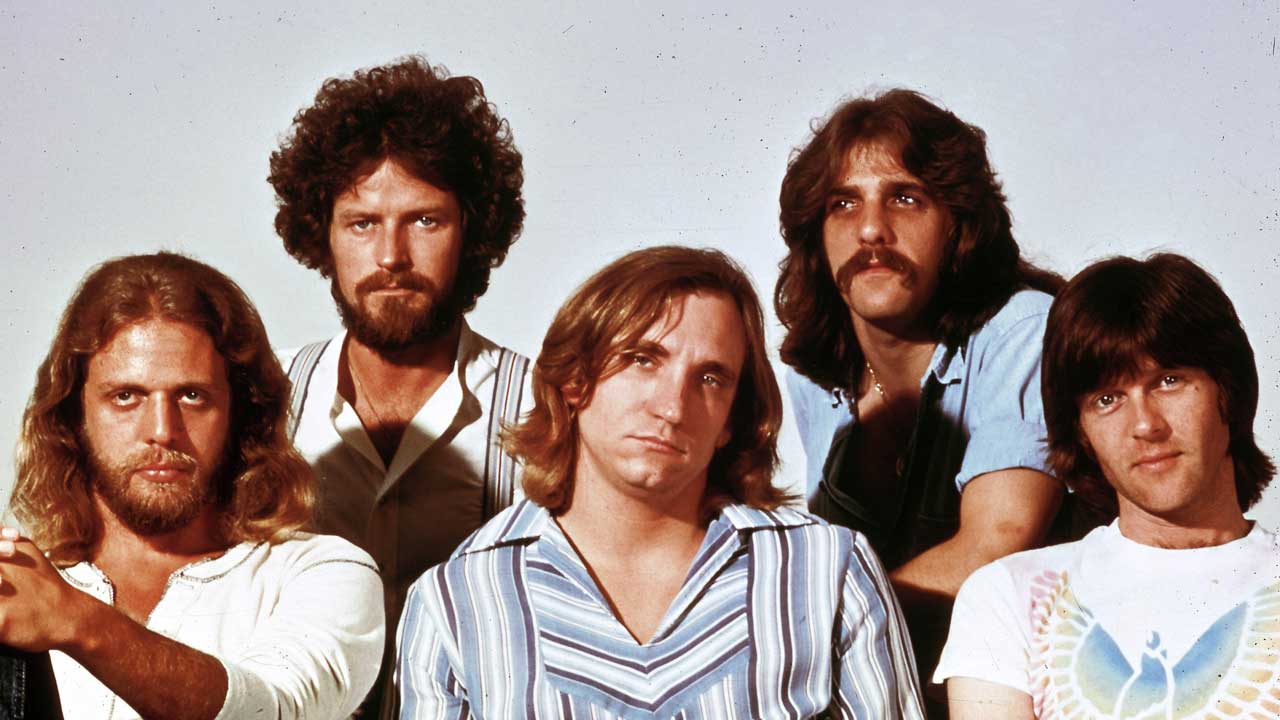

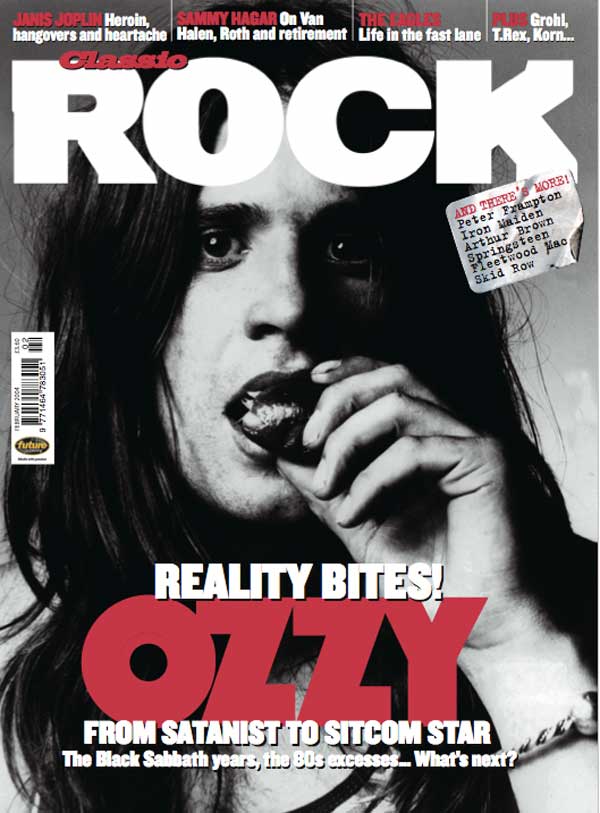
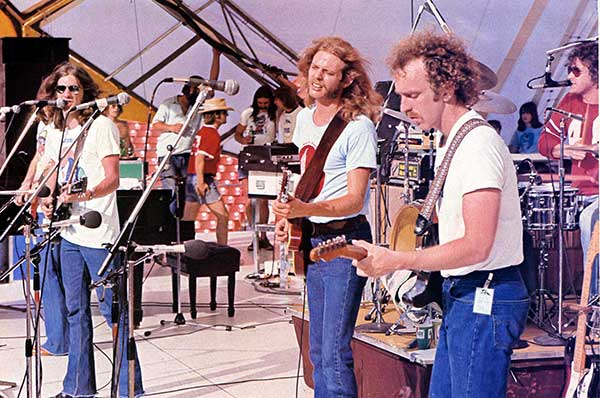
![Eagles - Hotel California (Live 1977) (Official Video) [HD] - YouTube](https://img.youtube.com/vi/09839DpTctU/maxresdefault.jpg)
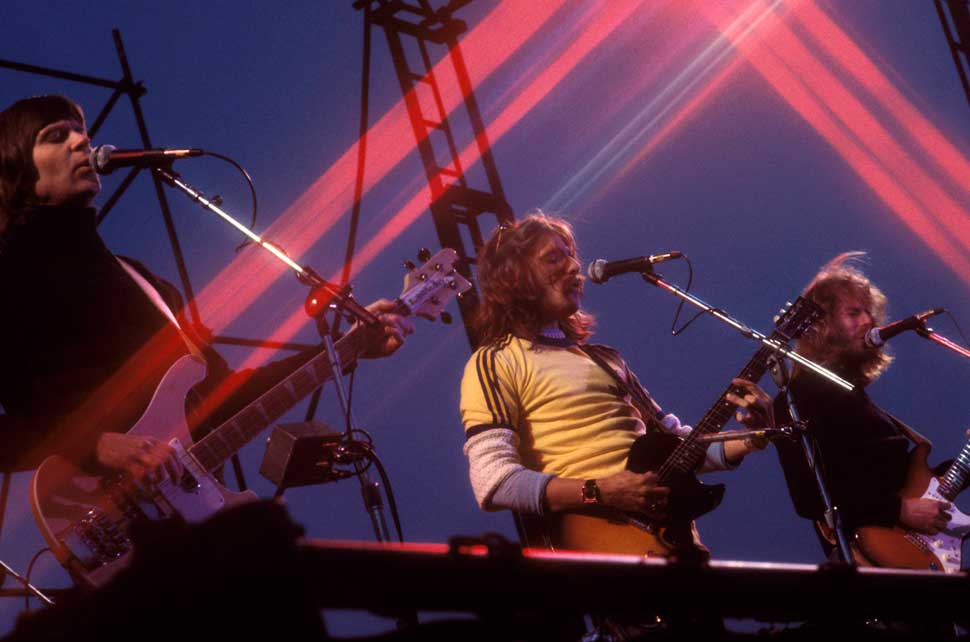
![Eagles - In The City (Official Video) [HD] - YouTube](https://img.youtube.com/vi/J39LK_wDzKw/maxresdefault.jpg)
